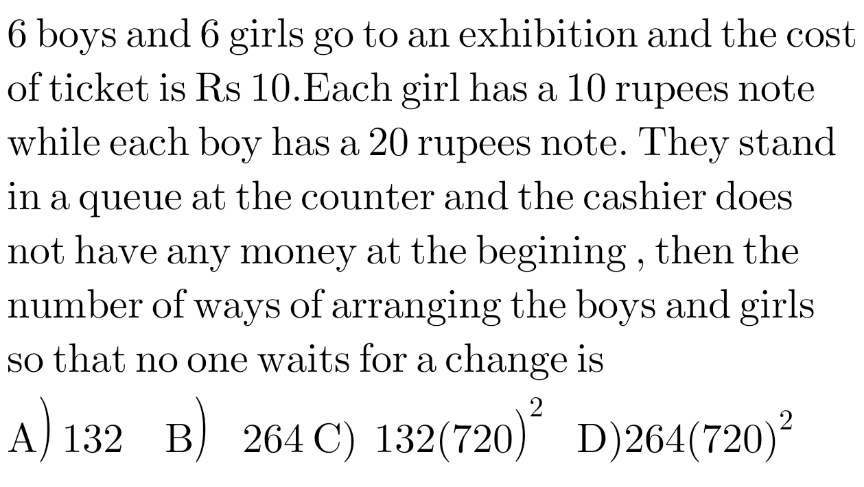
Permutation and CombinationQuestion and Answers: Page 3
Question Number 190260 Answers: 1 Comments: 0
Question Number 189614 Answers: 1 Comments: 0

Question Number 189049 Answers: 1 Comments: 2

Question Number 189021 Answers: 2 Comments: 4
$${How}\:{many}\:{non}−{similar}\:{triangles} \\ $$$${have}\:{integer}\:{angles}\:{in}\:°? \\ $$
Question Number 188551 Answers: 1 Comments: 0
Question Number 188362 Answers: 2 Comments: 0
Question Number 188301 Answers: 1 Comments: 4
Question Number 187948 Answers: 1 Comments: 0
Question Number 185659 Answers: 1 Comments: 1
Question Number 185642 Answers: 1 Comments: 1

Question Number 185350 Answers: 0 Comments: 1
Question Number 182793 Answers: 0 Comments: 0
Question Number 182695 Answers: 1 Comments: 2
Question Number 181971 Answers: 1 Comments: 0
Question Number 181939 Answers: 2 Comments: 0
Question Number 181251 Answers: 1 Comments: 1

Question Number 180890 Answers: 0 Comments: 2
Question Number 180899 Answers: 1 Comments: 0
Question Number 180773 Answers: 1 Comments: 0
Question Number 180585 Answers: 2 Comments: 0
Question Number 180520 Answers: 2 Comments: 0
Question Number 180421 Answers: 2 Comments: 0
Question Number 180335 Answers: 2 Comments: 1
Question Number 180212 Answers: 1 Comments: 0
$${How}\:{many}\:{polygons}\:{can}\:{be}\:{formed} \\ $$$$\:{from}\:{a}\:{heptagon}?\: \\ $$
Question Number 180027 Answers: 1 Comments: 0
Question Number 179993 Answers: 0 Comments: 13
